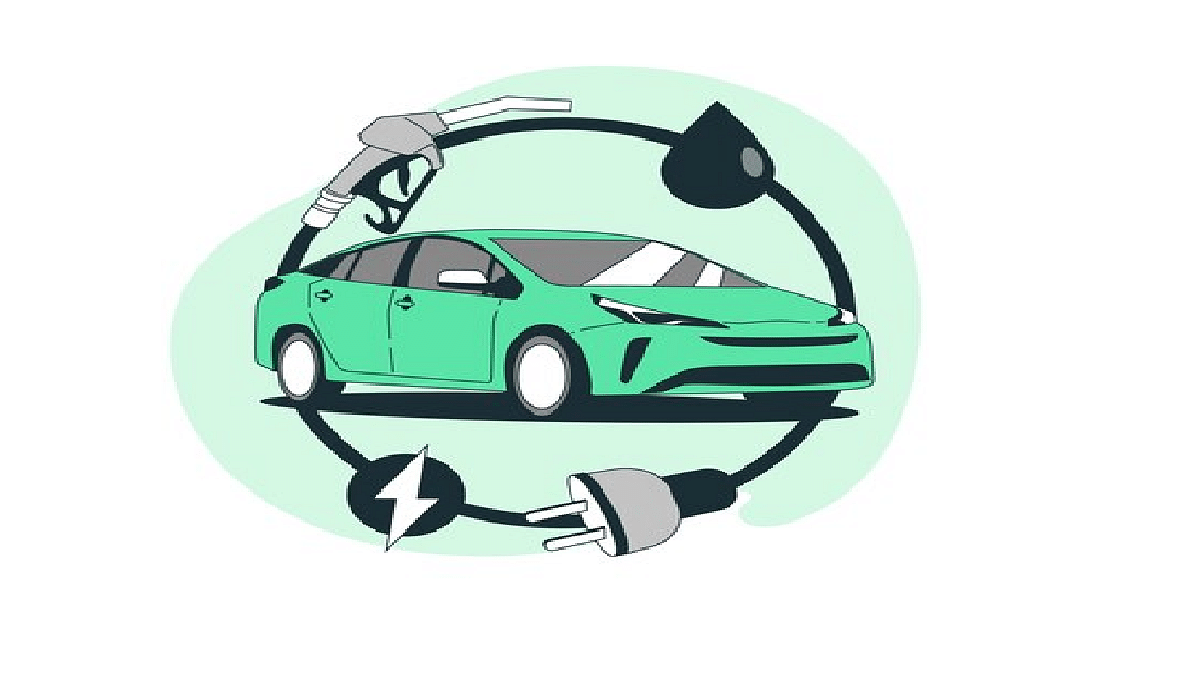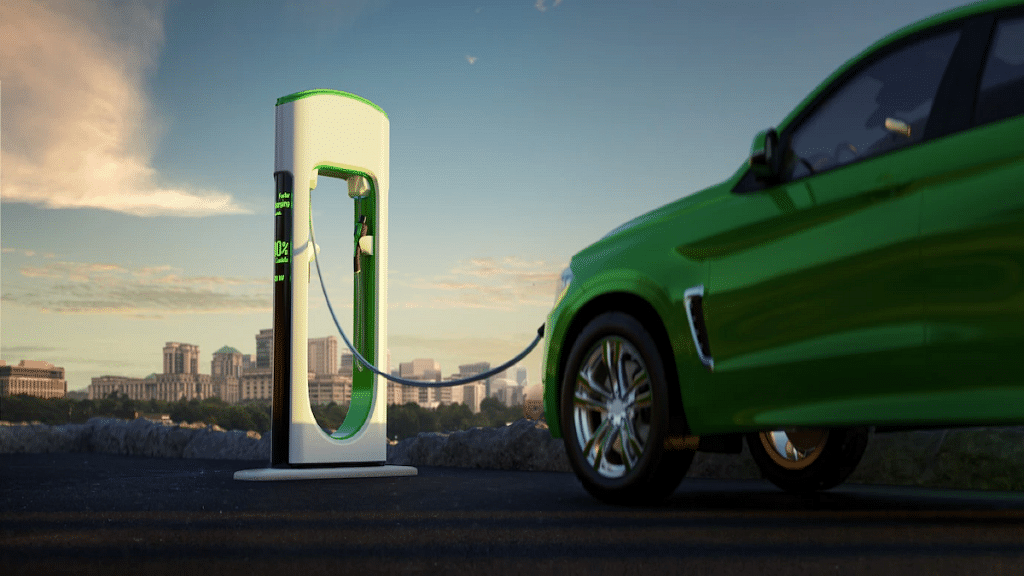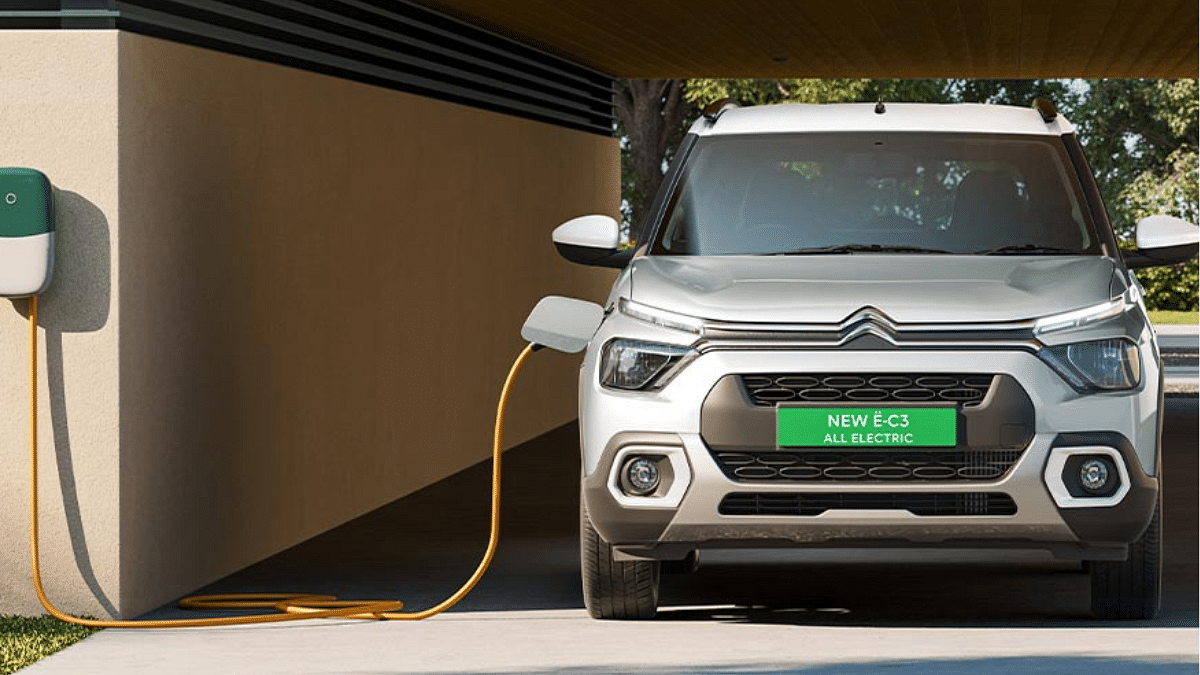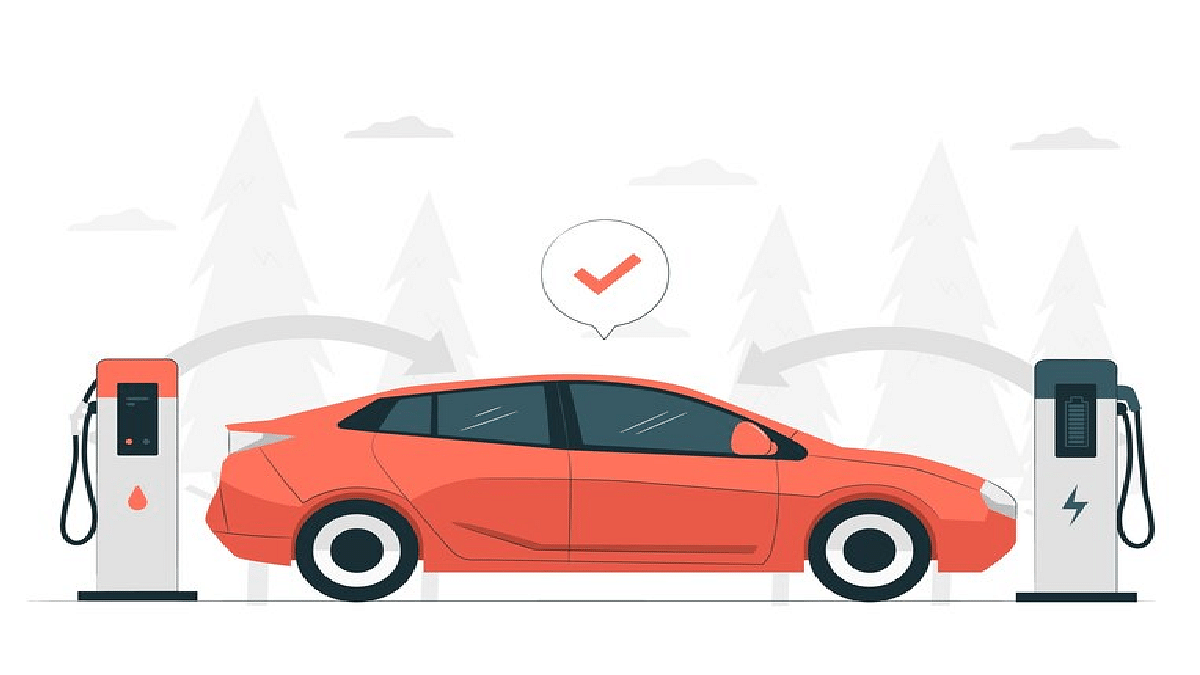Key Highlights
- Hybrid or electric vehicle has become a crucial decision
- Hybrid cars combine an internal combustion engine with an electric motor
- EVs rely solely on electric motors
The choice between a hybrid car and an electric vehicle has become a crucial decision for eco-conscious consumers. As the world seeks sustainable alternatives to traditional gasoline engines, the spotlight is on these two contenders, each with its unique set of advantages and considerations.
Here, we separate the differences between hybrid cars and electric vehicles, aiming to help prospective buyers make an informed decision that aligns with their lifestyle and environmental values. Also Read | Range Anxiety Vs. Charging Infrastructure: Addressing Common EV Concerns
Powertrain Dynamics

| Aspect | Hybrid Car | Electric Vehicle |
| Power Source | Internal combustion engine + Electric motor | Electric motor |
| Operating Modes | Can switch between gasoline and electric power | Solely relies on electricity |
| Environmental Impact | Depends on frequency of electric motor use | Zero tailpipe emissions |
Hybrid cars, as the name suggests, combine an internal combustion engine with an electric motor. This dual-power system allows the vehicle to switch between the two or operate both simultaneously.
On the other hand, electric vehicles solely rely on electricity for propulsion, utilizing powerful batteries to store and discharge energy. The key distinction lies in the source of power – a blend of gasoline and electric power versus pure electricity.
Environmental Impact

Hybrid cars, while more fuel-efficient than traditional gasoline vehicles, still rely on fossil fuels. The extent of their environmental friendliness depends on how frequently the electric motor is engaged.
In contrast, electric vehicles produce zero tailpipe emissions, making them a cleaner alternative with lower greenhouse gas footprints. However, the overall environmental impact also hinges on how the electricity used to charge EVs is generated – whether from renewable sources or conventional power grids.
Driving Range

| Aspect | Hybrid Car | Electric Vehicle |
| Range | Typically longer due to gasoline backup | Range can vary, and may require careful planning |
One of the chief concerns for potential buyers is the driving range. Hybrid cars typically have a longer range than purely electric vehicles since they can rely on gasoline when the battery is depleted.
Electric vehicles, while making significant strides, might require careful planning for longer journeys and access to charging infrastructure. The choice between the two may hinge on individual driving habits and the availability of charging stations.
Also Read | Xiaomi SU7 EV And SU7 Max EV Stun In Covert Road Trials: Picture Perfect Reveals
Charging Infrastructure

| Aspect | Hybrid Car | Electric Vehicle |
| Refueling | Any gas station | Requires charging stations |
| Infrastructure | Widely available | Developing, availability varies by region |
| Convenience | Easy and quick | Depends on charging station accessibility and speed |
A key aspect influencing the adoption of electric vehicles is the charging infrastructure. While hybrids can refuel at any gas station, electric vehicles require charging stations. The availability and accessibility of charging points play a crucial role in the convenience of owning an electric vehicle. Governments and private entities are investing heavily in expanding charging networks, but the current infrastructure may still pose challenges in certain regions.
Cost Considerations

| Aspect | Hybrid Car | Electric Vehicle |
| Upfront Cost | Generally lower | Higher upfront cost, but decreasing over time |
| Operational Cost | Moderate | Lower maintenance, potential cost efficiency |
| Government Incentives | Varies by region, may include tax credits | Often includes tax credits and incentives |
Cost remains a considerable factor in the decision-making process. Hybrid cars generally have a lower upfront cost compared to electric vehicles. However, the operational costs may tilt the scale in favor of EVs due to lower maintenance expenses and the overall cost efficiency of electric power. Government incentives and tax credits aimed at promoting sustainable transportation can also influence the financial equation.
Verdict

The choice between a hybrid car and an electric vehicle depends on individual preferences, driving habits, and environmental considerations. Both options contribute to reducing the carbon footprint, but the path they take to achieve this goal differs. As technology advances and infrastructure improves, the decision-making process is likely to become simpler. For now, prospective buyers must weigh the trade-offs and embrace a driving future that aligns with their values and the evolving demands of a sustainable planet.
Also Read | Planning A Long Drive With Your EV? Here Are Five Questions Every EV Owner Should Consider
